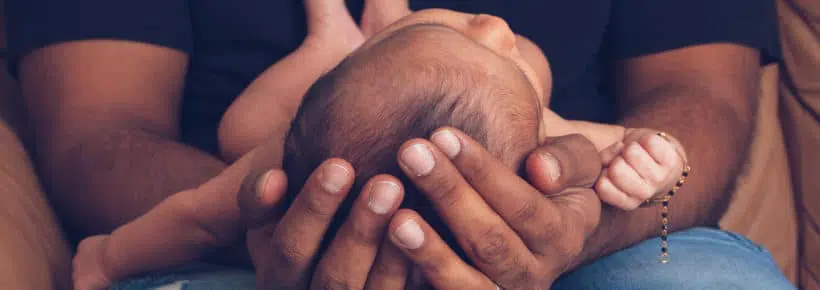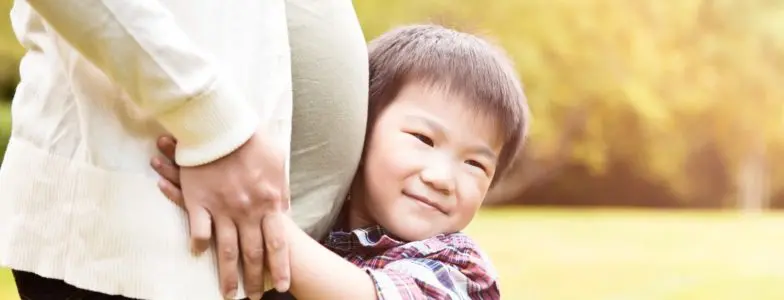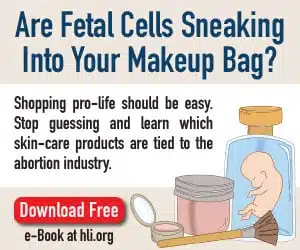Choosing Adventure, Despite the Risks
Pope Francis caused a great deal of consternation among population control activists when he recently called out the growing trend of replacing human babies with what are sometimes – somewhat nauseatingly – referred to as “fur babies” – i.e. pets.
“Today we see a form of selfishness,” said the Pope at a public audience in early January. “We see that people do not want to have children, or just one and no more. And many, many couples do not have children because they do not want to, or they have just one — but they have two dogs, two cats … Yes, dogs and cats take the place of children.”
“[T]his denial of fatherhood or motherhood diminishes us, it takes away our humanity,” he added.
The remarks caused quite the media furor. In an op-ed published on CNN, Alistair Currie, the head of campaigns and communications at Population Matters, declared pompously that the Pope’s comments “are wholly wrong.”
According to Currie, choosing to have few or no children is always and everywhere the selfless choice. “[T]he choice to have a small family, or no human family at all, is one that helps everyone,” he wrote, “particularly children, whose future depends on a more sustainable planet.” He adds that “showing love for animals is surely something that enhances and demonstrates our humanity – rather than diminishing it.”
Let me see if I have this right: On the one hand, choosing to have children is an inhumane choice, particularly towards children (who will suffer if we beget them). But, on the other hand, choosing to have non-human pets is a humane choice that demonstrates our humanity.
Now, I don’t disagree that a rightly ordered love for animals can indeed enhance our humanity. However, the idea that loving animals enhances our humanity, while loving human children enough to bring them into existence is somehow inherently selfish and inhumane, betrays some remarkably muddy thinking.
It is particularly puzzling when you consider that animals, too, consume resources. There are hundreds of millions of dogs and cats globally. And as one article put it, “What cats and dogs eat annually generates the same amount of carbon emissions as a year’s worth of driving 13.6 million cars.” It seems to me that if we are as deadly serious about reducing our carbon footprint as Currie wishes us to be, we should not be raising animals that serve no practical purpose.
I’m not serious, of course. But if we are going to endorse such an extreme position as that every human child threatens the planet, then we ought to be consistent, and acknowledge the environmental harms of pet ownership as well.
The Risk of Childlessness
In his remarks during that audience, the Holy Father put in a plug for adoption. “How many children in the world are waiting for someone to take care of them,” Pope Francis said. “Having a child is always a risk, either naturally or by adoption. But it is riskier not to have them. It is riskier to deny fatherhood, or to deny motherhood, be it real or spiritual.”
What a wonderful way to think about “risk” in conjunction with parenthood!
As I wrote a few weeks ago, when thinking about welcoming children many young couples can only see the innumerable “risks”: of financial hardship, of lifestyle changes, missed vacations, sleepless nights, and a lifetime of worry about that child’s welfare.
One the one hand, this is understandable. There is something about the idea of co-creating a whole new human being that is so inconceivably mysterious and consequential that it causes the head to spin. A couple, by uniting together in a fleeting physical union, can bring into being an immortal human being: one with his or her own personality, desires, ambitions, talents; a whole new life that will impact the lives of countless people in potentially life-changing ways, beginning with the parents. Looked at this way, the risks do seem enormous.
However, we can also turn this whole idea on its head. If the risks of welcoming a child are too huge to take, then what about the risks of not welcoming a child?
Decision theorists often point out that every choice comes with an “opportunity cost.” That is, when you choose one thing, you necessarily forego everything entailed by the alternatives. There are no “riskless” decisions. To choose to avoid the “risk” of parenthood, is to assume the “risks” involved in sterility.
And what are the risks of sterility? Well, the non-existence of a potential child who could have been, and all that that entails: the non-existence of the experience of parenthood for the parents; the non-existence of a brother or sister, nephew, or niece; the non-existence of countless experiences and memories; the non-existence of a potential carpenter, engineer, artist, mother or father; the non-existence of grandchildren and great grandchildren.
And on and on. An inexhaustible list of potential losses.
The Unanticipated Rewards of Parenthood
This does not mean, of course, that there are not sometimes very good reasons to postpone welcoming a child. The Church has always encouraged “responsible parenthood.” But it does mean that we must be honest and clear-sighted in weighing the risks: if welcoming a new life into the world seems too risky to venture, that also implies that it might be too risky not to venture! We only live one life, and the choice not to welcome children means to forego one of the most meaningful of life’s experiences.
In my line of work, I often have the chance to speak with parents who, at some point, either aborted a child, or avoided welcoming children by contracepting. I also have the opportunity to speak with many parents who unexpectedly became pregnant at a time when they were trying to postpone pregnancy, but who faced the challenge and welcomed the child.
It is heartbreaking to hear the deep regret from those first parents, who later realized that they desperately wanted the child they aborted, or who realized they wanted children, but only when it was too late. On the other hand, it is deeply moving to hear the stories of parents who found themselves with an unplanned pregnancy, and yet who accepted the great adventure of new life.
Their stories are not always easy. Children can come at times of great hardship: in the midst of serious illness, or severe financial difficulties. And yet, in the end, there is the child: a whole other human being, to know and to love; a whole other person who brings a new life and light to the family, contributing a personality and gifts that no other person could. A child that, in time, learns to give back to his or her parents; to love them as they age; to give them grandchildren.
“Children are really the supreme gift of marriage and contribute very substantially to the welfare of their parents,” wrote the Second Vatican Council Fathers in Gaudium et spes. “Hence, while not making the other purposes of matrimony of less account, the true practice of conjugal love, and the whole meaning of the family life which results from it, have this aim: that the couple be ready with stout hearts to cooperate with the love of the Creator and the Savior. Who through them will enlarge and enrich His own family day by day.” (no. 50)
Many couples who nearly aborted a child, later say that that child turned out to be the “greatest gift” of their lives, the gift that brought unanticipated joy, who in some cases got them to turn their lives around in dramatic ways.
Embrace the Adventure
G.K. Chesterton once wrote that an adventure is simply “an inconvenience rightly considered.”
There is no doubt that there are many “inconveniences” involved in parenthood. It is even true that a human being does consume resources, and that the number of humans on the planet can present an environmental challenge. However, this is not a challenge that is best avoided by deliberately getting rid of the humans that present the challenge. It is, rather, a challenge to be solved by the humans who are welcomed into the world by parents who have discerned, in a spirit of adventure, that welcoming a child is a risk worth taking.
As Pope St. Paul VI put it in Humanae vitae: “The transmission of human life is a most serious role in which married people collaborate freely and responsibly with God the Creator. It has always been a source of great joy to them, even though it sometimes entails many difficulties and hardships.” (no. 1)
From the very beginning of Genesis, with God’s command to “be fruitful and multiply,” the Scriptures and Tradition have always cultivated a radical belief in the goodness of human life. To be parents is essentially to receive a gift that gives a new prospect of love, understood from the lens of reciprocal generosity and gift of self.
Rather than discouraging couples with the doom and gloom anti-natalism of eco-extremism, we should be encouraging in our young this spirit of “adventuresomeness,” encouraging them to be open to welcoming the unfathomable gift of new life, should God so bless them with so great a gift.
It is undeniable that marriage and family in contemporary society are under constant attack from a poor, limiting, and unsatisfying understanding of the truth about the sexual life and conjugal love. Only by “pricking” the consciences of persons and society – as Pope Francis did – can we hope to awaken the desire for what is good, true, and beautiful about marriage, family, and children.
I conclude with an appeal made by Pope Benedict XVI to European government leaders in 2007. The Holy Father’s challenging words remain valid today, not only for European leaders but also for all countries and government leaders, especially those that promote secular ideologies which assault the dignity of marriage and family life and the sanctity of human life. Let us pray Benedict’s petition to build a Culture of Life will not fall upon deaf ears and hardened hearts but, instead, be welcomed and realized.
[Do] not allow children to be considered as a form of illness … do everything possible to make European countries once again open to welcoming children … to favor conditions enabling young couples to raise children … All this will be pointless, unless we can succeed in creating once again in our countries a climate of joy and confidence in life, a climate in which children are not seen as a burden, but rather as a gift for all.
As president of Human Life International, Fr. Boquet is a leading expert on the international pro-life and family movement, having journeyed to nearly 90 countries on pro-life missions over the last decade. Father Boquet works with pro-life and family leaders in 116 counties that partner with HLI to proclaim and advance the Gospel of Life. Read his full bio here.









Thank you all for the kind words!
Dr. Tobia
Beautiful message
Seira, it is!
Hello Fr. Shenan,
What a beautiful and insightful letter celebrating the joys of marriage, parenthood and children ending with the loving petition of Pope Benedict. Life is full of risks as well as choices. ” When we stop making choices in God’s direction, all that is left is to make choices in the wrong direction”-NIV, Life application Bible.
There are a lot of critics against the Culture of Life especially from mainstream media as you have pointed out. More recently and unexpectedly Elon Musk, founder of Tesla and Space X , publicly announced this ” It’s completely the opposite..(urging people to look at the data) if people don’t have more children, civilization is going to crumble, Mark my words…” Dec 07, 2021 .
I have read that declining fertility rates are a growing trend in Europe and Japan, Singapore, and even China. Sadly this is called the demographic winter and will translate into a “winter of discontent” to paraphrase Shakespeare. Spain and Italy have the lowest fertility rate in the world that will not be able to replace the population to a healthy level impacting the socio-economic infrastructure of the land from social security benefits to income-earning adults etc. Japan is now grappling with a phenomenon called Kodokushi meaning ” lonely death” as thousands of elderly seniors mostly shut-ins are dying alone and undiscovered for long periods of time. The main reason for this is Japan’s record low fertility rate with ” young people focusing on their careers and are abstaining from sex” therefore precluding marriage and families that will be the next generation of sushi chefs, artists, professionals et.al.
On the upside some countries in Europe ( Lithuania and Hungary) are now spearheading a movement to have more families, marriages with incentives of housing subsidies, employment opportunities and many more benefits to regain from a more traditional family and household unit. Even China is now reverting to encourage up to to 3 children to avert a population crisis from declining birth rates! This is a cautionary tale that we should all keep in mind and bear the consequences if we don’t act in love and truth.
I look forward to more of your in-depth and impactful articles. It is truly appreciated!
Blessings to you and HLI,
Dr. Mario
Thank you kindly for your well informed comments, Dr. Tobia.